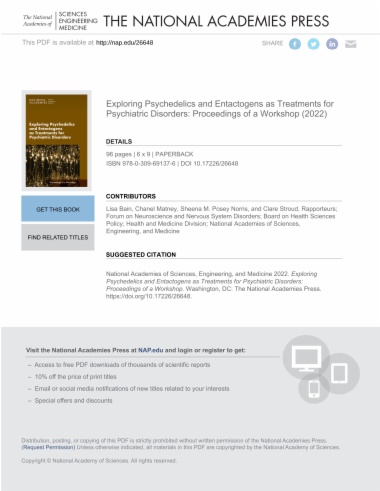

Psychiatric illnesses - such as major depressive disorder, anxiety disorder, substance use disorder, and posttraumatic stress disorder (PTSD) - are widely prevalent and represent a substantial health burden worldwide. Yet, conventional medications for mental illnesses often fail to provide relief to patients' disruptive and disabling symptoms. Existing and emerging evidence that psychedelics (e.g., LSD and psilocybin) and entactogens (e.g., MDMA) may be useful as tools to alleviate mental illness has sparked a renaissance of interest by investigators, clinicians, drug developers, and patient advocates in recent years. While promising data on therapeutic efficacy has energized research and development, resolving the mechanisms of action will be important for optimizing the efficacy and safety of these medicines. Further, evaluating the effect of psychedelics and entactogens on mood and behavior comes with unique challenges still in need of resolution. These include unresolved questions relating to blinding, placebo and nocebo effects, and the impact of psychosocial contexts.
In response to this renewed interest, the National Academies of Sciences, Engineering, and Medicine's Forum on Neuroscience and Nervous System Disorders convened a workshop on March 29-30, 2022. The workshop brought together a diverse group of stakeholders to explore the use of psychedelics and entactogens as treatments for psychiatric disorders. This Proceedings of a Workshop summarizes the presentations and discussions of the workshop.